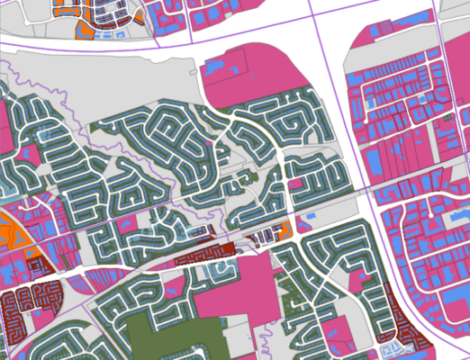 https://www.ssg.coop/wp-content/uploads/2024/02/grant-porter-Mx71xeQOev8-unsplash-scaled.jpg
1920
2560
Emi Do
https://www.ssg.coop/wp-content/uploads/2015/01/ssg_logo-e1677266550975.png
Emi Do2024-02-12 18:30:082024-02-12 18:30:45Fresno Council of Governments PCAP
https://www.ssg.coop/wp-content/uploads/2024/02/grant-porter-Mx71xeQOev8-unsplash-scaled.jpg
1920
2560
Emi Do
https://www.ssg.coop/wp-content/uploads/2015/01/ssg_logo-e1677266550975.png
Emi Do2024-02-12 18:30:082024-02-12 18:30:45Fresno Council of Governments PCAPClient City of Markham
Location Markham, ON
Timeline October 2015 – October 2017
Project Overview
SSG led and developed the first Municipal Energy Plan (MEP) with a target of net zero emissions in Ontario. The MEP included developing a GHG inventory that was compliant with the Global Protocol for Cities (GPC) framework, and working with the City and stakeholders to develop strategies for implementation to reach net zero by 2050. SSG undertook detailed modelling of the City’s land use plans, considering intensification and future urban areas, as well as the implications of Provincial policies such as Places to Grow, transportation plans, the Long Term Energy Plan, aspects of the Provincial Climate Action Plan (for example, electric vehicles adoption trajectories and enhanced building codes) and federal policies such as CAFE/CAFC fuel efficiency standards. Detailed financial modelling included projections of the price of carbon and evaluation of a range of impacts such as land-use policy on household and municipal finances and employment. Examples of actions that were modelled and evaluated included land use policy, solid waste actions, expanded district energy, PACE programs for fuel switching to electricity and for net metering using photovoltaics, infrastructure enhancements to support increased adoption of EVs, improved infrastructure to support active transportation modes, transit-oriented development, new transit infrastructure, and autonomous shared vehicles. The final MEP, informed by the municipal and provincial planning and policy context, brought together these technical components with stakeholder engagement, a communications plan, and a framework for action implementation.
You may also like
 https://www.ssg.coop/wp-content/uploads/2024/02/grant-porter-Mx71xeQOev8-unsplash-scaled.jpg
1920
2560
Emi Do
https://www.ssg.coop/wp-content/uploads/2015/01/ssg_logo-e1677266550975.png
Emi Do2024-02-12 18:30:082024-02-12 18:30:45Fresno Council of Governments PCAP
https://www.ssg.coop/wp-content/uploads/2024/02/grant-porter-Mx71xeQOev8-unsplash-scaled.jpg
1920
2560
Emi Do
https://www.ssg.coop/wp-content/uploads/2015/01/ssg_logo-e1677266550975.png
Emi Do2024-02-12 18:30:082024-02-12 18:30:45Fresno Council of Governments PCAP https://www.ssg.coop/wp-content/uploads/2024/02/michael-bowman-6HHfgpzyBtY-unsplash-scaled.jpg
1707
2560
Emi Do
https://www.ssg.coop/wp-content/uploads/2015/01/ssg_logo-e1677266550975.png
Emi Do2024-02-12 14:54:472024-02-12 16:00:28Miami Valley PCAP and CCAP
https://www.ssg.coop/wp-content/uploads/2024/02/michael-bowman-6HHfgpzyBtY-unsplash-scaled.jpg
1707
2560
Emi Do
https://www.ssg.coop/wp-content/uploads/2015/01/ssg_logo-e1677266550975.png
Emi Do2024-02-12 14:54:472024-02-12 16:00:28Miami Valley PCAP and CCAP https://www.ssg.coop/wp-content/uploads/2024/02/ross-joyner-DV1VPl6AnfQ-unsplash-scaled.jpg
2560
1707
Emi Do
https://www.ssg.coop/wp-content/uploads/2015/01/ssg_logo-e1677266550975.png
Emi Do2024-02-12 14:26:302024-02-12 14:26:30State of Nevada PCAP and CCAP
https://www.ssg.coop/wp-content/uploads/2024/02/ross-joyner-DV1VPl6AnfQ-unsplash-scaled.jpg
2560
1707
Emi Do
https://www.ssg.coop/wp-content/uploads/2015/01/ssg_logo-e1677266550975.png
Emi Do2024-02-12 14:26:302024-02-12 14:26:30State of Nevada PCAP and CCAP https://www.ssg.coop/wp-content/uploads/2024/02/trevor-michael-K1Z3AA00b6g-unsplash-scaled.jpg
2560
1920
Emi Do
https://www.ssg.coop/wp-content/uploads/2015/01/ssg_logo-e1677266550975.png
Emi Do2024-02-12 13:25:512024-02-19 15:55:58Rapid City MSA PCAP and CCAP
https://www.ssg.coop/wp-content/uploads/2024/02/trevor-michael-K1Z3AA00b6g-unsplash-scaled.jpg
2560
1920
Emi Do
https://www.ssg.coop/wp-content/uploads/2015/01/ssg_logo-e1677266550975.png
Emi Do2024-02-12 13:25:512024-02-19 15:55:58Rapid City MSA PCAP and CCAP
![]()
SSG’s work is carried out on unceded and unsurrendered Indigenous territories, ranging from the traditional lands of the Michif Piyii in the North to the Huilliche in the South; from Hul'qumi'num Peoples in the West to the Mi'kma’qi in the East.
SSG recognizes that land acknowledgements alone are insufficient. We are committed to educating ourselves about the lands we are on and ensuring that our work contributes to healing and decolonization.
This work is licensed under a Creative Commons Attribution-No Derivatives 4.0 International License
Website terms and conditions



